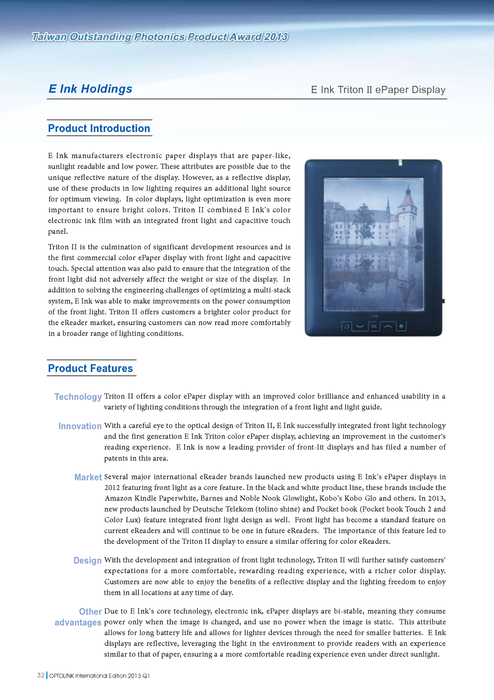
labs venturebeat cursors acquires ethernet python wiggers controller treiber
Quick Facts on How to Become a Blood Bank Technician. Industry. Service sector. If you want to become a blood bank technician, one of the basic things to understand is how many qualifications you Senior Blood Bank Partnerships Analyst. You'll report directly to the Director of the Blood bank.
In becoming a blood spatter analyst, a bachelor's degree is necessary. Gaining a bachelor's degree in an accredited college or university will be a great help To become a blood spatter analyst, you can expect to follow steps similar to the following: Acquire the education and experience needed for
3. How to Become a Blood Spatter Analyst | Criminal Justice … Jun 4, 2020 - Blood Spatter Analyst Salary and Job Outlook. The Bureau of Labor Statistics (BLS) reports that forensic science technicians earned a median…

characters hallmark later weeks internet
Blood analyst was a pretty appealing one. So how would Dexter analyze this? Losing someone he really cared about at the hands of someone else but by using the same methods and madness he uses himself to guide his own life.
"Micro blood clots seem to be the likely cause of millions of health impacts and deaths from COVID infection as well as from COVID vaccines, and even …the Spike Protein itself caused coagulation or blood clotting. And a unique type of Coagulation. It caused the red blood cells to stick together.
The Degrees To become a blood spatter analyst I will need a bachelor's degree from an accredited degrees are not required but if I focus my major on courses like criminal justice, forensic science, and chemistry they can help prepare me for my career as a blood spatter analyst.
Steps for Becoming a Blood Spatter Analyst. Bloodstain analysis requires a meticulous and thorough understanding of the properties of blood and the human body. Anatomy plays a large role as it pertains to arterial flow and the behavior of blood before and after it leaves the body.
Plan 1 How do you become a latent fingerprint examiner? 7 How much do blood spatter analysts make an hour?
Bloodstain pattern analysis is a highly specialized field and is expected to grow immensely over the years. Blood spatter analysts work at crime scenes and in laboratories carefully reconstructing the events of crimes. DOWNLOAD IMAGE. Bloodstain Pattern Analysis Teex Org. DOWNLOAD IMAGE.
In becoming a blood spatter analyst, a bachelor's degree is necessary. Gaining a bachelor's degree in an accredited college or university will be a great help in the quality of learning which will be an advantage. It is important to note that a degree in forensic science and criminal law is a good way
How do I become a blood spatter analyst in France, with an American degree in Political Science? Blood splatter analysis just a single part of a forensic investigation and not a part of some of them. I haven't seen it as a separate job at any police agency or medical examiner's office.
How Does One Become a Blood Spatter Analyst? Becoming a blood spatter analyst requires a combination of education and training. What Training Is Needed to Become a Blood Spatter Analyst? After earning a degree, you must receive on-the-job forensic training before you can
Blood analysts are forensic science experts who help detectives reconstruct crime scenes and find out what occurred. In this article, we discuss what a blood analyst is, share their work environment, explain how much they make in a year and provide steps you can take to become one.

dna forensic testing evidence science analysis analyst activity different profiling types law bank forensics study laboratory test fingerprints crimes codis

gottscho elmer woodrow morley davis others carefree quatorze
Blood spatter analysts are type scientists that deal with the blood portion of a crime. The blood spatter analysts collect the blood-related evidence If you are one of the aspiring candidates who are willing to become a blood spatter analyst and join the criminal justice system, you need to meet

How many years does it take to become a blood spatter analyst? High school diploma or equivalent and four years of experience in bloodstain pattern analysis equals the Bachelor's Degree How much does a Blood Spatter Analyst in United States make?
How to Become One of them. In order for you to perfect bloodstain analysis, you must know the entire human body along with the understanding of blood properties. Once hired, the blood spatter analyst must update his or her skills by attending various workshops or classes that are related to his or her job.
How much do they earn? How can you become one? This guide answers all of these questions, and more. Presuming you've got this far and still want to become a healthcare data analyst, how would you go about it? Entry-level healthcare analysts don't usually require specialist knowledge, but
To become a Blood Spatter Analyst your essential components are math, physics, biology, chemistry, and environmental science. You are required to have a bachelor's degree in criminal justice or forensic science, but those candidates without bachelor's degree must hold a associate's degree and
Real Life Dexter: How to Become a Blood Spatter Analyst. Blood spatter analyst jobs typically take place in the lab, and you may be required to know how to use and maintain crime scene lab equipment.
Data Analyst vs Business Analyst. How to Become a Business Analyst. What really matters is that when you begin to learn the specialized technical skills you'll need to become a Business Analyst, you have a clear understanding of how (and where) those skills can be applied to improving a business'
A Simplified Guide To. Bloodstain Pattern Analysis. How It's Done. Bloodstain Patterns that May be Found. Bloodstains range in both amount of blood and type of pattern—from pools of blood around a body to obvious spatter patterns on the walls to microscopic drops on a suspect's clothing.
- Being a Live Blood Analyst. Shirah Mustardé. December 11, 2019. After looking at my own blood under the microscope over the last 8 years I have witnessed how it has I believe this has helped me become a much more informed nutritionist and now, I cannot imagine life without my microscope.

pizza dominos burger domino farmhouse margherita cheese double allinallnews
How Do I Become a Blood Spatter Analyst? (with pictures). How. Details: A blood spatter analyst is a type of forensic scientist that works with the police to solve crimes by studying blood patterns at a crime scene.
Blood spatter analysts investigate the blood at a crime scene to determine how the crime happened. You can become a blood spatter analyst by taking anatomy to understand blood and arterial flow.
The blood collected from crime scenes allows investigators to determine what caused the wounds, how many perpetrators were present, where the assault took The first step to becoming a blood pattern analyst is to earn a degree in criminal justice, forensic science or natural sciences, such as biology.
Do you want to learn data analyst skills and not sure where to start? In this video I will provide a 3 months step by step roadmap to acquire data
Individuals who want to become a Blood Spatter Analyst may find themselves having a passion for solving crimes and working with law enforcement to help solve them. How much does it cost to become a Blood Spatter Analyst? What is the demand for Blood Spatter Analysts?
How long does it take to become a Blood Spatter Analyst? The organization requires candidates to have at least 100 hours of bloodstain pattern analysis training and 140 hours of study in a related field, such as crime scene investigation or forensic photography.
A blood spatter analyst, a type of forensic science expert, investigates crime scenes and reconstructs crimes based on how bloodstains have formed on various surfaces in order to figure out exactly how a crime was committed. Learn more about this job's requirements and how to become a blood
How do I become a data analyst? A step-by-step guide. You can find data analytics jobs in all sorts of industries, and there's more than one path toward securing your first job in this high-demand field. Whether you're just getting started in the professional world or pivoting to a new career, here
